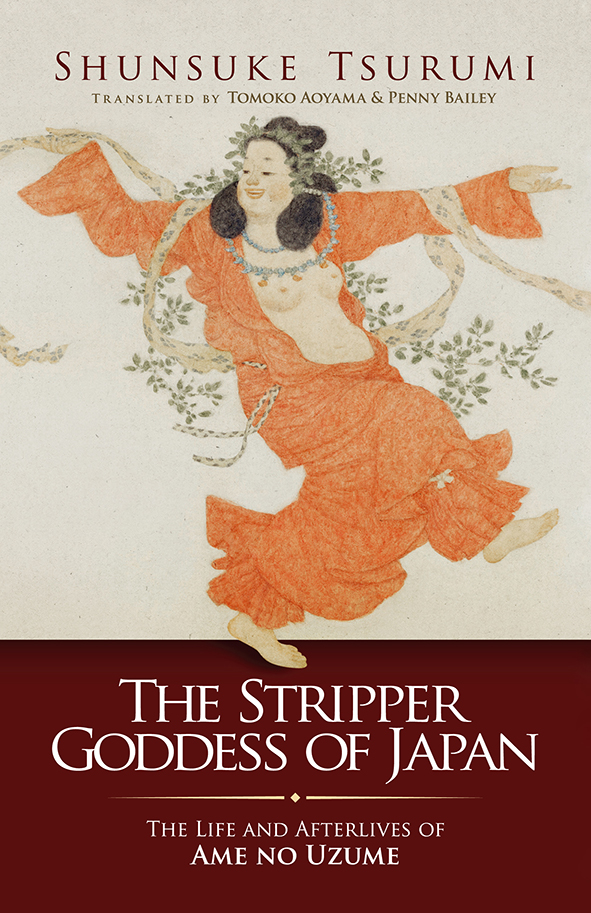 Tomoko Aoyama and Penny Bailey’s monumental translation project has come to fruition as the book The Stripper Goddess of Japan: The Life and Afterlives of Ame no Uzume.
Tomoko Aoyama and Penny Bailey’s monumental translation project has come to fruition as the book The Stripper Goddess of Japan: The Life and Afterlives of Ame no Uzume.
The Stripper Goddess of Japan: The Life and Afterlives of Ame no Uzume is the first complete English translation of Ame no Uzume den (1991) by one of Japan’s most influential post-war intellectuals, Tsurumi Shunsuke (1922–2015). Tsurumi regarded this book as the most important of his vast and varied corpus; in a sense, it is his tour de force, liberally drawing from his profound knowledge and thinking in multiple fields, ranging from classic and contemporary literature to philosophy, sociology, history, anthropology, politics, popular culture and ‘marginal’ (genkai) art.
Tsurumi’s subject, Ame no Uzume, is a minor goddess in Japanese mythology who appears in the ancient texts Kojiki and Nihon shoki. She is famous for her comic-shamanistic dance performance enticing the Sun Goddess Amaterasu out of the Heavenly Cave where she has retreated as a result of her brother’s violence. Uzume’s half-naked performance is so entertaining to the other deities that Amaterasu ventures outside, thus restoring light to the world. In another episode, Uzume faces a formidable stranger giant, Sarutahiko, at the crossroads of Heaven and Earth, and manages to ease tensions and avoid confrontation. In both instances she reveals her abilities as an open-minded and border-crossing goddess with a democratic, pacifist and mirthful approach to dealing with discomfort and adversity.
Tsurumi identifies Uzume’s eight quintessential characteristics and demonstrates how some of these are found in people across a wide range of genres, fields and cultures through time and space. Many of his examples are women, including the founder of kabuki, Izumo no O-Kuni; the legendary post-war striptease performer, Ichijō Sayuri; the founder of the ‘dancing religion’, Kitamura Sayo; the provocative writer-nun, Setouchi Harumi/Jakuchō; and the famously humorous novelist-essayist, Tanabe Seiko. Tsurumi’s method, structure and style perfectly match his subject, opening the way for deep consideration into ways in which the many serious global issues facing humankind such as climate change, human rights, and escalating warfare may be resolved or at least diminished.



